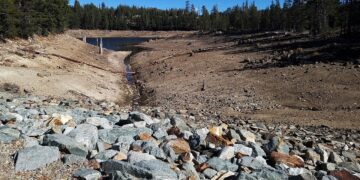Global Warming vs Climate Change: Understanding Key Differences
Many often use the terms “global warming” and “climate change” interchangeably, yet they represent different phenomena. Understanding the distinction is key to gaining a precise insight into the complex mechanisms affecting our planet’s environment. This article seeks to clarify the differences, highlight their interconnections, and address common questions to enhance awareness and drive informed actions toward sustainability.
What is Global Warming?
Global warming refers to the observed rise in the average surface temperature of the Earth, primarily due to increasing concentrations of greenhouse gases in the atmosphere. As a subset of climate change, global warming is caused by emissions from human activities such as deforestation, burning fossil fuels, and industrial processes. This anthropogenic influence has led to an enhanced greenhouse effect, which is at the core of global warming discussions.
The Science Behind Global Warming
Scientists measure global warming through surface temperature readings collected across the globe. Over the past century, notably since the Industrial Revolution, these measurements reveal a clear and consistent upward trend in global temperatures, with significant implications for ecosystems and human societies.
What is Climate Change?
Climate change, on the other hand, encompasses global warming but refers more broadly to long-term changes in temperature, precipitation, wind patterns, and other elements of the Earth’s climate system. Climate change includes both the rising temperatures of global warming and the broader effects these temperature shifts have on the planet.
Broader Impacts of Climate Change
Climate change affects more than just temperature. It leads to altered weather patterns, rising sea levels due to melting polar ice caps, and increased frequency and severity of extreme weather events such as hurricanes, droughts, and heavy rainfall. These changes have dire impacts on biodiversity, agriculture, water resources, and all life forms on Earth.
Interconnection Between Global Warming and Climate Change
While global warming is a more specific term, climate change is more encompassing. Global warming describes the cause (rise in temperatures), whereas climate change encompasses the effect (varied changes in climate patterns). They are intricately linked; the warming of the globe changes the climate, and those changes loop back to influence global warming further.
Common Questions and Misconceptions
Is Global Warming Just a Natural Cycle?
While Earth’s climate has changed through natural cycles over millions of years, the rapid warming seen in recent decades aligns closely with industrialization and the increase in greenhouse gases produced by human activity. Thus, recent global warming is predominantly anthropogenic—human-made.
Can Reducing Carbon Emissions Stop Climate Change?
Reducing carbon emissions is critical but not sufficient alone to stop climate change. It is necessary to couple emission reductions with adaptation strategies to manage unavoidable impacts. Comprehensive policies and global cooperation are essential for mitigating climate change effectively.
Are Ozone Depletion and Global Warming Related?
While both concern our planet’s atmosphere, ozone depletion and global warming are caused by different processes and chemicals. Ozone depletion involves the breakdown of the ozone layer by substances like chlorofluorocarbons (CFCs). Though they might overlap effects such as increased UV radiation influencing planetary warming, they are distinct issues requiring different solutions.
Action Steps and Conclusion
Understanding the nuances between global warming and climate change is crucial for effective communication and policy-making. Individual actions, like reducing fossil fuel consumption, embracing renewable energy, and supporting sustainable practices, can contribute to mitigation efforts. Globally, stringent policies and international agreements, such as the Paris Agreement, are pivotal.
In conclusion, while global warming and climate change are closely related, distinguishing between these concepts helps clarify the scope of the issue we face. By comprehending each component, societies can better strategize and implement the critical changes needed to safeguard future generations.











